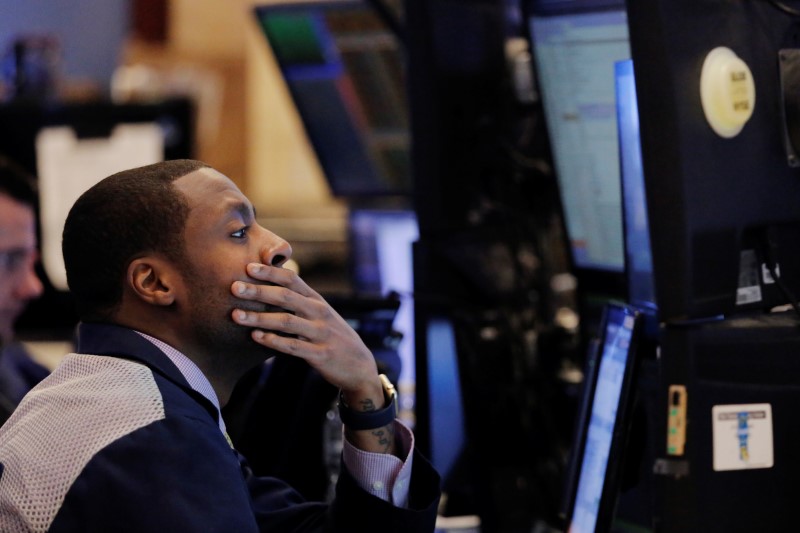By Yasin Ebrahim
Investing.com – Wall Street notched a weekly gain after hobbling to close just higher on Friday as investors weighed data showing the economic recovery remained intact against signs that lawmakers remain far apart on talks concerning the next wave of fiscal stimulus.
The Dow Jones Industrial Average fell 0.17%, or 46 points. The S&P 500 gained 0.06%, while the Nasdaq Composite fell 0.87%.
The US economy added a better-than-forecast 1.76 million jobs in July, reinforcing investor expectations that the labor market remains steady despite recent data including a weaker jobless claims report earlier this week suggesting otherwise.
While the bullish jobs report added credence to the economic recovery, stalled talks among lawmakers on the next virus relief package threatens to stifle growth and weighed on investor optimism.
House Speaker Nancy Pelosi reportedly said an offer to reduce the $3.4 trillion package by $1 trillion was rejected by the White House, marking a blow to hopes of lawmakers meeting a self-imposed Friday deadline to resolve key sticking points.
The slow pace of negotiations on Capitol Hill, rising U.S.- China trade tensions - in the wake of President Donald Trump's decision to target Chinese tech - also took a toll on growth stocks, with tech, in particular coming under pressure.
Trump on Thursday issued executive orders against Chinese tech firms TikTok and WeChat, which he claimed would curb the "threat" they pose to U.S. national security.
Facebook (NASDAQ:FB) sidestepped the broader market weakness, while the rest of the so-called Fab 5, floundered with Alphabet (NASDAQ:GOOGL), Amazon (NASDAQ:AMZN), Apple (NASDAQ:AAPL), and Microsoft (NASDAQ:MSFT) nursing losses for the day.
Energy also played its role in pressuring the broader market, falling 1% as oil prices ended the day in the red on worries that U.S.-China tensions could hurt the nascent recovery in crude demand.
On the earnings front, Uber Technologies (NYSE:UBER) slumped 5.2% following a wider-than-expected loss in the second quarter as its core ride sharing business saw bookings plummet 73% amid pandemic-led weakness.
T-Mobile US (NASDAQ:TMUS) popped 6.5% to hit new 52-week highs after the wireless provider delivered better-than-expected quarterly earnings and said it had usurped AT&T (NYSE:T) as the second biggest mobile carrier in the U.S.
